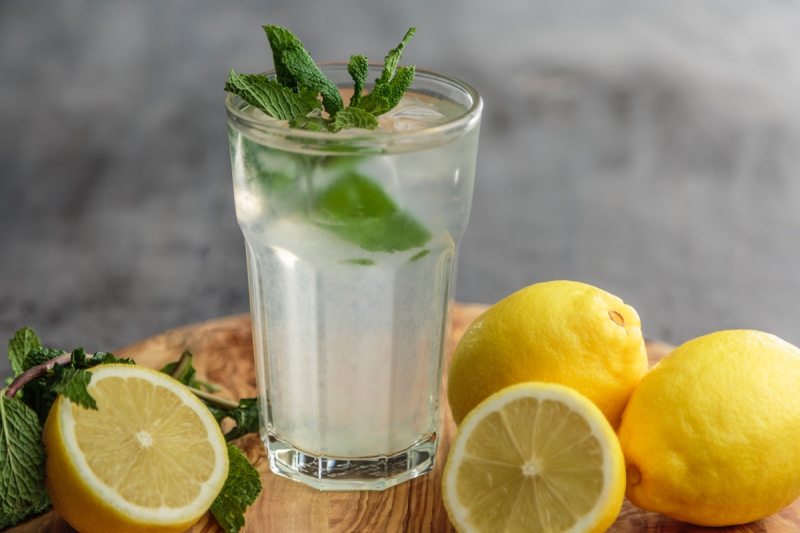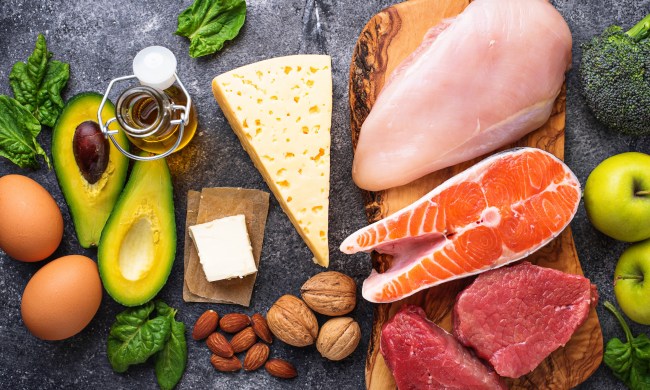While losing weight is not easy, it should also not be tedious. As a trainer and nutritionist, I constantly have clients asking me what to eat to reach their goals in an efficient and manageable manner. Nutrient-dense and delicious meals are consistently the way to go to see results, and eating fewer calories than you burn is key.
Weight loss can be confusing, and people employ different strategies to drop a few pounds. However, according to research, ‘’the most common weight loss strategies are changing one’s diet by restricting energy intake and increasing exercise.’’
We will explore some essential information to help you on your weight loss journey and show you what to eat when losing weight!
How many calories should you eat when losing weight?

When losing weight, you should aim to lose one to two pounds weekly. Doing so will make the process safe and sustainable.
So, following a calorie deficit of at least 500 to 1,000 calories per day can help you achieve the weekly goal of one to two pounds. Just be sure to check how many calories each meal contains before eating to avoid going above your calorie limit.
For men, the recommended daily calorie intake is 2,000 to 3,000 on average. Hence, a calorie deficit will make the consumption between 1,000 and 2,500 calories. One thousand calories is too low for many people, so using exercise to make up for calories burned can allow you to still eat a sufficient amount. For optimum health when losing weight, it’s advisable for men to consume at least 1,500 calories, while women should consume a minimum of 1,200 calories daily.
How does protein play a role in weight loss?

Protein plays a vital role in the weight loss process. Usually, it’s normal to still feel hungry, especially a few hours after eating, and then consume more food. A way out of this is eating more protein.
Protein increases satiety, making you full for longer periods. Hence, this decreases your chances of getting hungry every time. Protein also enhances your metabolism and supports your immune system. It helps you maintain muscle mass while you burn fat, helping restrict weight loss to fat alone.
What to eat when losing weight

Consider adding the following foods to your weekly meal plan to support your weight loss goals:
- Eggs
- Beans and legumes
- Salmon
- Greek yogurt
- Nuts (almond, hazelnut, peanut, walnut, cashew nut, pistachios, pinenuts, etc.)
- Seeds (chia seed, sesame seed, flax seed, quinoa seed, pumpkin seeds, etc.)
- Tuna
- Leafy greens
- Chicken breast
- Potatoes
- Avocados
- Fruits (berries, watermelon, etc.)
- Whole grains (rice, low-calorie pasta, etc.)
- Chilli peppers
- Soup
- Dark chocolate
- Oatmeal
- Cottage cheese
- Egg whites
- Lentils
- Cruciferous vegetables (broccoli, turnip, cabbage, cauliflower, etc.)
- Chickpeas
- Asparagus
- Whey protein powder
- Sardines
- Shrimp
- Tilapia
- Ground turkey
How to figure out portion control and meal timing

Understanding portion control is key to maintaining a calorie deficit. Start by using tools like kitchen scales, measuring cups, or even your hands to determine the serving size of your meals. Most nutrition labels have serving sizes you can check to see how much you consume. Also, serve your meals on small plates to reduce your portion size naturally.
In addition, you must balance your plate with lean proteins, vegetables, and whole grains or starchy vegetables. This will help ensure you don’t consume too many carbohydrates and have sufficient protein in your diet. Lastly, eat slowly, pay attention to fullness and hunger, and avoid distractions like TV or phones during meals.
For meal timing, it can be tempting to set a schedule around the same time every day. While that is good, it may not be sustainable over time. Also, depending on hunger pangs may not always be the best. This is because it’s possible to skip meals or even for hunger to come at irregular hours of the day, which can affect digestion.
So, what you can do is start with the time you eat breakfast in the morning. Then, observe when you get hungry after breakfast. Set a schedule around that period gradually and keep to it. Note that it doesn’t have to be precisely the same time. Finally, avoid skipping meals — starvation is not the key to losing weight and may cause your body to hold onto fat.
What beverages should you drink to lose weight?

In addition to water, the following beverages can help you lose weight:
- Grape juice
- Black coffee
- Ginger tea
- Beetroot juice
- Apple cider vinegar
- Lemon water
- Vegetable juice
- Protein shakes
Frequently asked questions

How can I drop 20 pounds fast?
Do the following to lose 20 pounds of weight fast: maintain a calorie deficit, drink more water, eat more protein and less unhealthy carbs, get quality sleep, and move more. You can lift weights and do cardio to support your calorie deficit as well.
However, it is important to note that weight loss shouldn’t happen too fast. Experts recommend losing one to two pounds weekly, so don’t push yourself too hard, and expect to hit 20 pounds in 10 to 20 weeks.
What is the 30/30/30 rule for weight loss?
As the name implies, the 30/30/30 rule encourages eating 30 grams of protein within 30 minutes of waking up and engaging in mild exercise for 30 minutes. It can positively affect weight loss and help you develop a healthier lifestyle.
How can you lose weight fast in two weeks?
If you want to lose weight fast in two weeks, try intermittent fasting. In addition to exercising, a calorie deficit, quality sleep, and increased water intake, intermittent fasting is one of the most effective ways to shed weight quickly.
It entails setting a fixed time for eating every day. For example, you can fast for 16 hours and then eat all your meals within the remaining eight hours. Mind you, there is still a need to count calories during your eating period. Your body will burn more calories and use fat for energy during fasting, which can help you lose weight.




